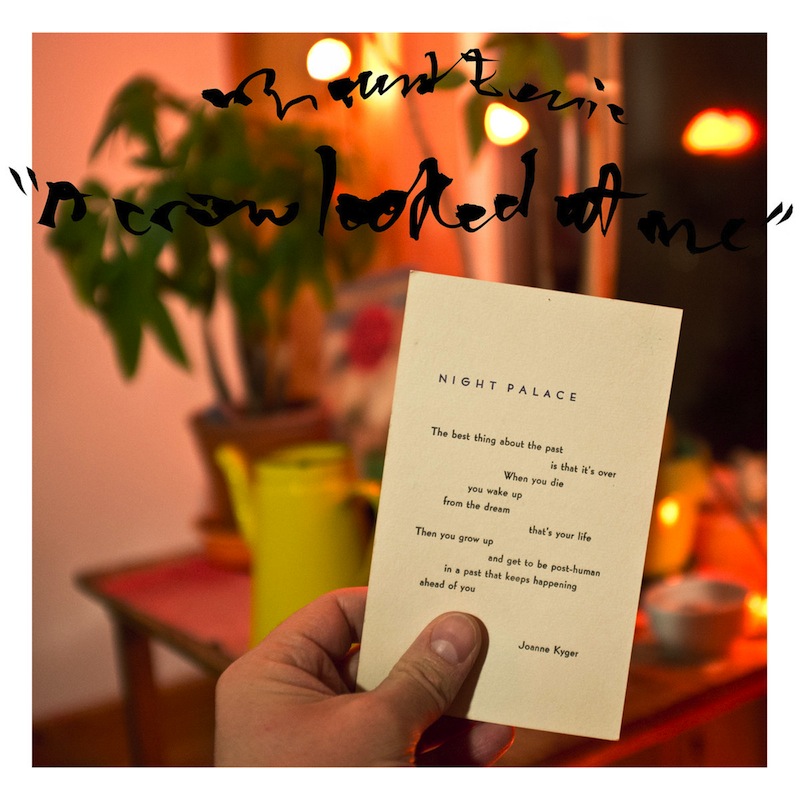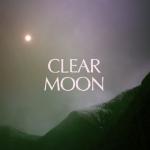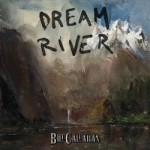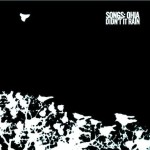Mount Eerie : A Crow Looked at Me

You can’t write about death in the same way that we can’t write about life in an honest fashion. At the same time, you can’t make art out of it, or experience it, because there’s no way to personally return from the experience. Like a horrid causality of nature, we’re only privy to experiencing it outside ourselves. The distance between death of a loved one, and coming to terms with it is insurmountable. That’s the overwhelming takeaway from A Crow Looked at Me: The new album by Mount Eerie that openly concerns the tragedy that brought about its creation, the death of Phil Elverum’s wife a year after the birth of their child through a battle with pancreatic cancer.
Tonally, A Crow Looked at Me is a dark and intense album, which tracks such as “Real Death” and “Seaweed” presented as minimalist dirges. The intensity of the lyrics is built around a feeling of emptiness; “Real Death,” in particular, features vocals that borderline on spoken-word whispered from a void of hurt, communicating an intense narrative: “A week after you died a package with your name on it came/And inside was a gift for our daughter you had ordered in secret/ And collapsed there on the front steps I wailed/ A backpack for when she goes to school a couple years from now/ You were thinking ahead to a future you must have known deep down would not include you.” It’s not a statement that allows for commentary. It just is.
“Seaweed”’s guitar work, much like everything on the album is full of Elverum’s acoustic guitar plucked and strummed in a hollow state. It’s at times warm, at times booming, but more than anything scorchingly lonely, carefully contemplating every next strum, every note. There are additional sounds that caress the sometimes catatonic silence before another verse, sometimes a discordant piano, sometimes a hollowed bass. But everything that can be heard on “Real Death” and “Seaweed” contain the necessary and oft-repeated components for the entirety of the album, sonically and lyrically.
Elverum’s vocals are so well constructed, his intonation sometimes hesitant, his annunciations properly hushed, solemn, seemingly unable to reach the music itself. They sometimes just go over it, through it, or outright abandon the rhythm of it. During “Ravens” this varied vocal element is used to great intensity. There are also some notable shifts in tempo throughout. “Forest Fire” feels like it has a greater momentum behind it, with percussive accents over Elverum’s spoken-word menagerie providing a beautiful contrast.
Eleverum does a masterful job of matching the intent of the sound alongside the lyrical content, as difficult as that composition may have been. “Swims,” with its constrained echo-laden bass and sullen lo-fi soundscapes painfully wrestle and match once more the lyrical content, “We’re always so close to not existing at all/ except in the confusion of our survived-bys/ grasping at the echos.” “My Chasm”’s heartbeat-like electronics breathe patiently alongside a beautiful piano accompaniment, while Elverum reflects on the grisly tragedy of life itself. The amount of identifiable pain in his voice is palpable, especially when singing “look at me/death is real.” “When I take out the Garbage at Night” and “Emptiness Part 2” both have similar moments of impact or rawness, a quality that cannot be understated here.
“Toothbrush/Trash” delivers a quivering and cracking acoustic impression that stands in direct contrast with the rest of the album. Its surprising audio cue comes as Elverum sings “October wind blows/it makes a door close” as a door actually slams in the track. It’s the door to the room he’s recording in, a haunted chamber of memory and connection that now seems more real than ever. It’s simple and effective.
The shift in experimentation toward the end of the album finds it’s paragon in “Soria Moria,” a six-minute diatribe of confessional lyrics led by a guitar that is possessed by a bitterness, with composition oscillating between tempos and notes that evoke other tracks of the album but never seem to fit here. When the warm, fuzzy amp finally bites in, it’s a signifier that this is the most complex track aurally, ending as a diary set to buzzy and pulsing guitars and when appropriate, near silence. It’s a wonderful lead up to “Crow.”
It’s difficult to discuss “Crow,” as it is difficult to discuss the album on the whole. To evaluate it even. Not because it’s so inordinately complex, but because it’s deceptively simple, wholly minimalist with an ending that is absolutely fitting, and would be a disservice to describe in detail, because it’s best to experience on one’s own, free of expectation, and hang on every verse and every word until it ends, as all things must.
A Crow Looked at Me is a deeply personal, deeply passionate, soul-crushing work. There is no brightness or resolution to be found throughout. What perhaps is most interesting is its lack of attempting in any way to lessen the tragedy of loss, or even rationalize or understand it. Because, ultimately, there is no way of understanding death, it’s finality, and how it’s affected the loved ones left behind. A Crow Looked at Me is haunting in every sense of the word—pained, a recognition of suffering and it bears it wounds with honesty. It is arguably a masterful work of minimal production that is intimate, yet contemplative, and ultimately deeply sad. Not because of its topic, but because of the fashion in which it is addressed—because of the humanity of it all. If you said to yourself at any point throughout this, that “I can’t listen to this because of the subject matter, or because of how depressing it is” you are robbing yourself of a rare experience. It’s not meant to be comforting or understanding, it’s not meant to evoke happiness, it’s not meant to extend the sounds of grace or civility under duress. It’s outlier music, it’s human, it’s beyond vulnerable. Don’t call it art. Don’t call it music even. Call it a documentation of suffering and loss as an experience, and treat it as such.
Similar Albums:
 Mount Eerie – Clear Moon
Mount Eerie – Clear Moon
 Bill Callahan – Dream River
Bill Callahan – Dream River
 Songs: Ohia – Didn’t It Rain
Songs: Ohia – Didn’t It Rain

